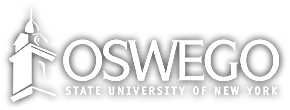Sometimes, your classes can get the best of you.
Have you ever put off a huge project until the last day before it’s due? Ever let your homework pile up over the course of the week? These two things can work together to make you feel overwhelmed, stressed, and buried in work. Contrary to popular belief, a pot of coffee and an all nighter are not the solution to this problem. This bolg post is aimed at time management, seeking help in topics you may be struggling in, and how to survive the semester without stressing over being behind in classes.
When it comes to time management, there are many courses of action you can take to help keep organized and work in a productive, timely manner. Here are a few methods you can use to help manage your time:
- Make a schedule for yourself!-When a professor assigns a project that is due in a month, it may be a good idea to utilize all of the time that you have been given to complete the assignment. This usually means that you’re expected to put a lot of work into the assignment. In order to keep on track, make a schedule for yourself. Use a loose leaf piece of paper, calender, etc. to remind yourself what part of the project you should be working on at a given time.
- Buy yourself a white board!– This is a must have for any college student. A great idea is to keep the white board on the wall next to your bed so you can see whatever reminders you’ve written yourself as soon as you wake up. That way you won’t forget about an assignment that is due. Plan your week out on the board–it will be extremely helpful!
- Have a smartphone? Use it!-There are some great features in most smartphones that can work wonders when it comes to managing time. Most phones have a notepad, which can be used to write notes to yourself regarding a project or homework assignment. Another great feature is the alarm. Set alarms for yourself to remind you that you should be doing your work. That way you won’t get distracted by whatever you may be doing and lose track of time.
- Buy a planner!-Planners are a great invention–especially for a college student. Use them to keep track of all of your assignments and their due dates. This way, you can get things done before they start to pile up.
- Others- Other great ways to stay on track include leaving sticky notes for yourself, or having a trustworthy friend remind you to stay on track.
- Office Hours-Most professors on campus have open office hours–which is a specified time on a given day where they are open to students who may wish to come in and seek help on a project, paper, homework assignment, or seek additional instruction in a specific area. Usually office hours are posted in a courses syllabus. If not, consult your professor to see when they are available. This is a great way to establish a good relationship with your professor as well as receive one on one help with whatever you may be struggling with. Professors are always happy to help!
- Tutoring Services- SUNY Oswego’s Office of Learning Services provides numerous resources t students who wish to seek extra help with their classes. A great service provided is their tutoring service. If you visit the OLS office (Located in room 171 in the Campus Center), you can request a tutor to help you. Tutors are available for most lower level courses, as well as upper level courses. These tutors are usually undergraduate students, graduate students, or professors who make themselves available to help you.
- Need someone to proofread your paper? Go to the WRITING CENTER!-Located on the third floor of the Penfield Library, the Writing Center is a great service offered to those who wish to seek help with a writing assignment. If you wish to have somebody read over your paper and help you improve your writing skills. To make an appointment with a writing tutor, go to this web address and follow the instructions. http://www.oswego.edu/academics/support/OLS/wc.html
- When studying, DON’T CRAM!-Spreading out study sessions over a period of time before your exam will help you to retain the information better. Study one portion of the material at a time. Cramming is stressful and ultimately is not a good way to study. Taking breaks between study sessions is healthy and gives the information time to sink in.
- Study with a group of friends- Sometimes, working in a group is much better than working alone. If you have a big exam to study for, study with a group and take turns testing each other on the material.
- Go to the library!-If you feel as if you may be studying in a distracting environment, go to the library to do your work. There are plenty of places in the library that promote productivity and help you to focus on your work and your work alone. For me, just being at the library makes me study harder and focus more.


